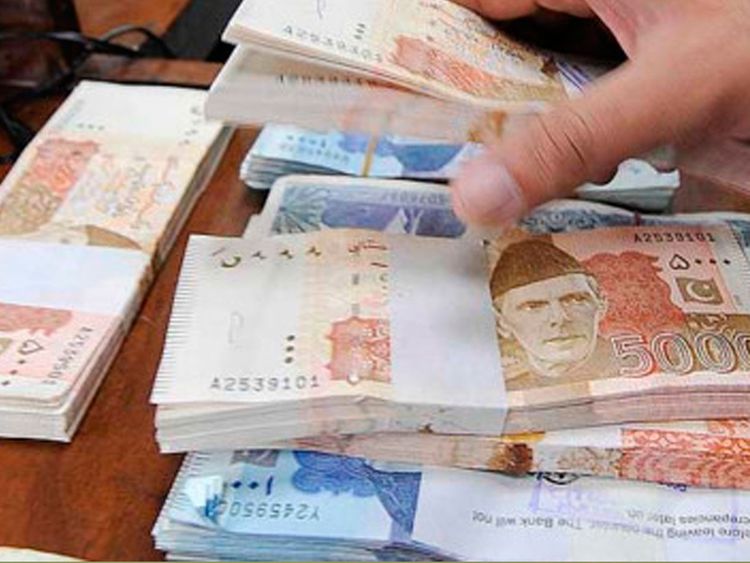By Staff Reporter
KARACHI: Pakistan’s public debt surged 32 percent to Rs58.962 trillion in the year to May, central bank data showed on Wednesday, as the government borrowed heavily to finance its fiscal deficit and cope with a weakening currency.
The debt, which was Rs44.641 trillion at the end of May 2022, rose 1 percent month-on-month and 23.3 percent in the first 11 months of the fiscal year that ended in June, the State Bank of Pakistan (SBP) said.
Domestic debt increased 28 percent year-on-year to Rs37.1 trillion rupees, while foreign debt jumped 40 percent to Rs21.9 trillion, reflecting the impact of currency depreciation on dollar-denominated external debt.
The rupee lost 43 percent of its value against the dollar in the past year, trading at 285 per dollar in May compared with 199 a year earlier, as the country faced a balance of payments crisis and a shortage of foreign exchange reserves.
The government also faced high interest payments on its debt, which were budgeted at Rs7.3 trillion rupees for the fiscal year 2023/24, up 85 percent from a year ago.
The cost of insuring Pakistan’s sovereign debt against default, however, fell sharply after the country reached a staff-level agreement with the International Monetary Fund (IMF) last week on a $3 billion bailout programme.
Pakistan’s five-year credit default swap (CDS) dropped by 1,240 basis points to 4,676 basis points on July 4, following the IMF deal, according to brokerage Topline Securities.
CDS is a type of insurance that investors buy to protect themselves from credit default on bonds issued by corporates and countries. A lower spread indicates a lower risk of default and vice versa.
The CDS spread is now down by 7,712 basis points from its peak of 12,388 basis points on November 21, when Pakistan’s economic outlook was bleak amid surging inflation, falling reserves and political uncertainty.
The IMF agreement, which is under a stand-by arrangement (SBA) after the previous extended fund facility (EFF) expired on June 30, will unlock critical $1.1 billion in July for Pakistan and help it meet its external debt obligations.
The SBA has reduced the sovereign credit risk of Pakistani bonds, which have appreciated sharply in the international market, said Fahad Rauf, head of research at Ismail Iqbal Securities.
“The CDS spread is still high compared to historical levels. If Pakistan continues to engage with IMF and works towards reforms, the spread will fall further,” Rauf said.
However, some analysts remain concerned about Pakistan’s medium-term prospects, as it faces $25 billion in debt repayments in the current fiscal year. Moody’s Investors Service and Fitch Ratings have also warned of persistent risks to the country’s financial stability.
Copyright © 2021 Independent Pakistan | All rights reserved




